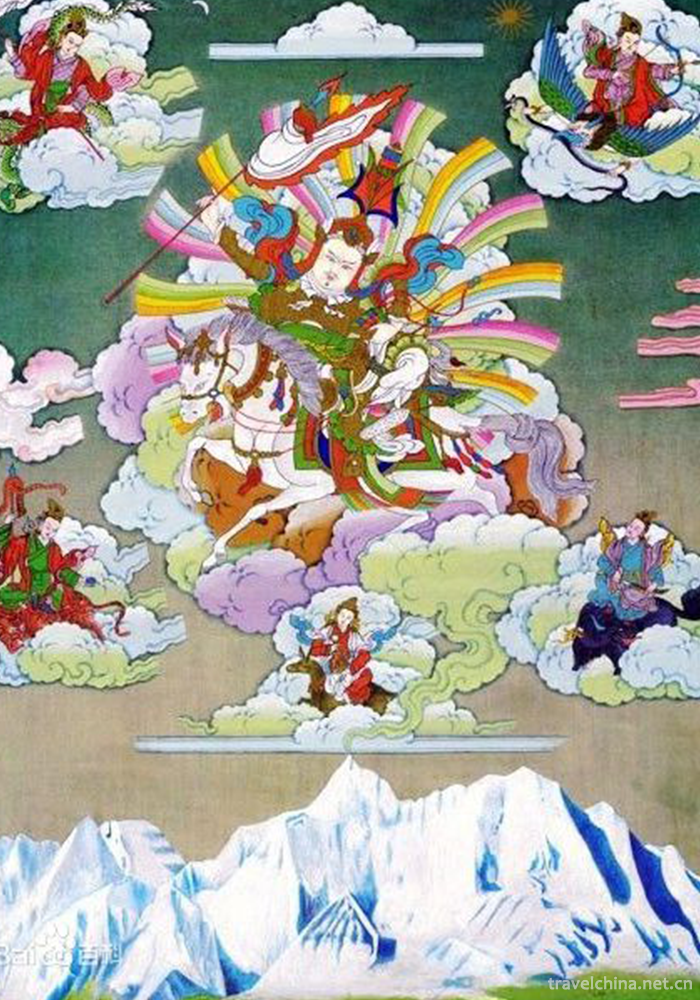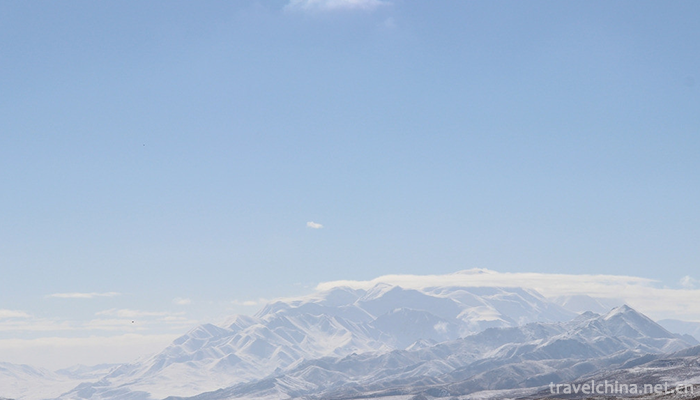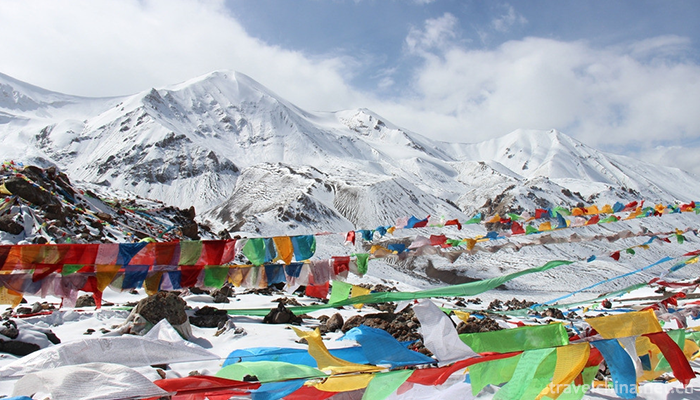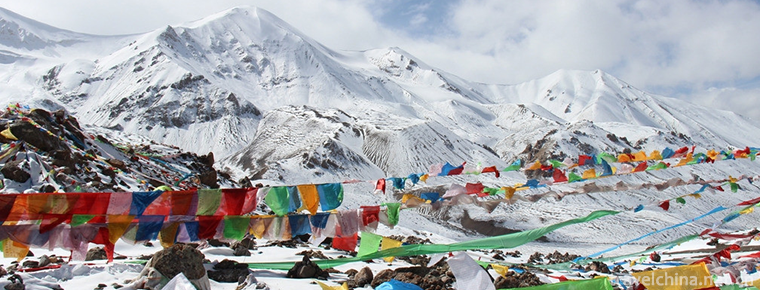Legend of Anima Qingxueshan
Legend of Anima Qingxueshan
The Legend of Anima Qing Snow Mountain refers to the legendary Anima Qing Mountain God, who is a powerful and upright God riding a high-headed white horse, holding a Mani bag (a treasure). In the minds of Tibetans, Anima Qingxueshan is the Taoist site of Guanyin Bodhisattva and the head of the four God mountains in Tibet. He responds to all requests, especially for pilgrims who come from afar. It is said that Anima Qingshan belongs to horses. Every Lunar New Year, all the gods in Tibet gather in Anima Qingshan, turning mountains here and worshipping in horse years is tantamount to worshipping all the God mountains. The merit of thinking.
On May 23, 2011, the "Anima Qingxueshan Legend" declared by the Golo Tibetan Autonomous Prefecture of Qinghai Province was approved by the State Council as the third batch of intangible cultural heritage.
historical origin
Legend has it that Anima Qingshan belongs to horses. Every lunar year, all the gods in Tibet gather in Anima Qingshan. In the year of horse, turning to mountains and worshipping them is tantamount to worshipping all the God mountains. It has incredible merits.
primary coverage
According to ancient Tibetan folklore, the Anima Qingshan God was one of the earliest nine heavenly thrones in the Tuchun kingdom, one of the eight sons of Budaigongjia, one of the nine mountain gods sacrificed by Tibetan ancestors in successive dynasties. The Anima Qingshan God lived in the northeastern part of the Qinghai-Tibet Plateau. The chief minister of Anima Qingshan God lived in the northeastern part of the Qinghai-Tibet Plateau, where the people's life and death and all mountain gods and It is the earliest and largest mountain god here, so it is honored as "Majia", that is, the King of Mars. It is also the ancestor god, God of war and God of protection of Tibetans. According to legend, the Anima Qingshan God wore a red cap, silver armour, riding on the Jade Dragon White Horse, holding a spear in his right hand, holding a flag in his left hand, hanging a sword at his waist and hanging an arrow with a bow. Day patrols the void and the world, clouds and rains, thunder and lightning, or good luck, or disaster, rewards and punishments, monitoring the enemy. Gather ghosts and gods at night and send missions.
There are 360 relatives of Anima Qingdashan god, including nine Houni and nine sons and nine daughters, and another 1500 God generals and servants. They live in palaces built of gold, jade and precious stones in the upper, middle and lower levels respectively. Tigers, wolves, jackals and bears watch their dogs, while bison, rock sheep and deer musk deer are their livestock. In addition, Anima Qingshan gods have different gods in all directions to defend fortresses, battalions for dozens of miles, flags covering the sky, swords like forest. Local residents can point out the names of these gods one by one. There are many glaciers, ice caves and spring pools, which are regarded as the treasure house of mountain gods and the prison for punishing gods and ghosts. Tibetan Buddhism believes that Anima Qingshan god, who has accepted Buddhist precepts, devoted himself to practice and disregarded human customs, has gained the position of Buddhist ten places and only visited this mountain once in the year of monkeys.
Inheritance status
Anima Qingshan God is also the God of wealth in Tibetan hearts. He is the fruit of Bodhisattva in ten places. Every year, almost all Tibetan businessmen come here to worship and pray for prosperous business and billowing financial resources.
Tibetan sages once described the merits of Anima Qingshan as follows: as long as we provide sincerely, all the good wishes in our hearts can be realized, and all the bad things can go away from us. Whether you are seeking a career, marriage, family, health and other people's blessings, or seeking relief, Buddha, you can do so.
Legend has it that he is also the Soul Mountain of the Tibetan hero King Gesar. Every year, a large number of pilgrims climb mountains, wade through rivers and wind meals to worship piously before sleeping in the open air.
Inheritance significance
Animaqing Snow Mountain is also one of the top ten snow mountains open to the outside world in China. Tibetan Animaqing Snow Mountain means Tibetan Snow Mountain. Every year, many Tibetan compatriots and Chinese and foreign tourists come here to visit, worship and explore the mountains. Compared with many scenic spots polluted by human development, it is clean, primitive and sacred.





-
1.Cattle back Mountain Niubeishan Mountain
Niubei Mountain is located in the border of Xingjing County and Luding County in Ya'an City, Sichuan Province. It is the watershed between Qingyi...
Time 2018-10-13 -
2.Jinshanling the Great WallTime 2018-12-10
-
3.The AncientCity of Lang Zhong
Langzhong Ancient City is a national AAAAA-level tourist attraction, a thousand-year-old county, the hometown of Chinese Spring Festival culture, one of the four ancient cities in China.
Time 2018-12-12 -
4.Five spring mountain
Wuquan Mountain is located at the northern foot of Gaolan Mountain, south of Lanzhou City. It is a famous Longshang resort with a history of more than 2,000 years
Time 2018-12-22 -
5.Chaoyang Bird Fossil National Geological Park
Chaoyang Bird Fossil World Geopark is located in Chaoyang City, western Liaoning Province. Chaoyang is located at the junction of Liaoning, Hebei and Mongolia provinces in the throat of Chinese cock t
Time 2019-01-05 -
6.Tangjiahe Scenic Area
Tangjiahe Scenic Area is located in Qingchuan County, Guangyuan City, Sichuan Province. Subtropical monsoon climate. National AAAA-level tourist attractions. Established in 1978, it covers a total are
Time 2019-02-13 -
7.Zhangjiakou Zhangbei Grassland
Zhangbei grassland is located in Zhangbei County, 70 kilometers northwest of Zhangjiakou. It consists of two grasslands, Zhongdu and Angoli. In Zhangbei grassland, you can ride horses and shoot arrows
Time 2019-03-10 -
8.Legend of Zen ancestors
Huangmei is the birthplace of Chinese Zen culture. There are six ancestral courts of Zen in China, two of which are exclusive in this county. The four ancestors temple and the five ancestors temple in
Time 2019-04-15 -
9.Hangzhou Reviews
Hangzhou commentary originated from the Southern Song Dynasty, and has a history of 800 years. It is the most characteristic local traditional folk art in Hangzhou, Zhejiang Province.
Time 2019-05-02 -
10.Mashan folk songs
Mashan Folk Song is a traditional folk song form which is popular in the area of Mashan Town, Jingzhou District, Jingzhou City, Hubei Province. One of China's national intangible cultural heritage lis
Time 2019-05-15 -
11.stone carving
Stone carving refers to the use of various carvable and carvable stones to create a visible and touchable artistic image with a certain space, in order to reflect social life, express the artist's aes
Time 2019-06-15 -
12.Ban Gu
Ban Gu (32 - 92 years), Meng Jian, Fufeng An Ling (now Shaanxi Xianyang Northeast China, famous in Eastern Han Dynasty historian , Litterateur 。 Ban Gu's birth Confucianism Family, father Ban Bi Uncle
Time 2019-09-06